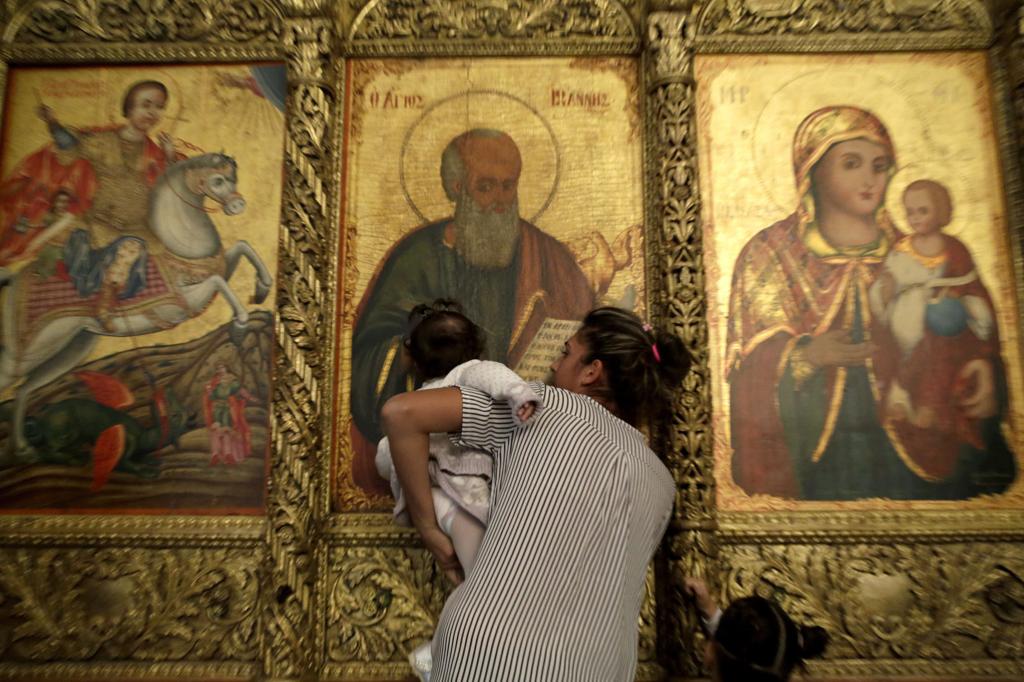It should not surprise us to learn that we are often creatures of the culture in which we live. We understand this, particularly when we travel and encounter people whose culture differs profoundly from our own. What seems obvious to us, might seem obscure to them. What we eat, how we shop, what counts as polite, what is rude, all of these are shaped by culture. In truth, this is just the tip of the iceberg. We do not enter the world as a blank slate, nor do we reach the so-called “age of discretion” without already having acquired a wide range of thoughts, beliefs, tendencies, etc. We are constantly being formed and shaped by our environment. At some point in our lives, our will gains strength and begins to play a contributing role in our life. However, we discover, if we pay attention, that the will is always confronting an “uneven playing field.”
This insight traditionally plays a role in the Church’s understanding of the catechumenate, that process by which we initiate persons into the life of the Orthodox faith. In early centuries, that process of preparation lasted as much as three years. Surprisingly, it consisted primarily in “moral instruction” (teachings on how to behave). Instruction in the doctrines of the faith did not take place until after Baptism! The assumption behind this was (and still should be) that catechumens needed spiritual formation before they were ready to receive doctrinal instruction. This assumption has been greatly weakened in our modern culture.
We labor under the myth of being an “information-based” society. We imagine that we are deeply informed, have ready access to massive amounts of information on the basis of which we are able to make free and well-considered decisions. This over-simplification of our human experience is deeply flawed. Among the things we’ve learned in the past year-and-a-half is that “distance education” doesn’t work very well. There’s a good reason for that: education is not merely about the acquisition of information. Interaction with a computer screen in insufficient. We are social beings and require the presence and direct interaction with others in order to learn well and fully. Our mistake about all of this could be compared to imagining that infants merely need milk and not touch, cuddling, cooing, and the human face. We know the result of such mistaken notions: babies die, suffering from “failure to thrive.”
Catechumens, if given only a diet of information, also fail to thrive. Above all else, it is the practice of the faith that makes faith possible.
Then Jesus said to those Jews who believed Him, “If you abide in My word, you are My disciples indeed. And you shall know the truth, and the truth shall make you free.” (Jn. 8:31-32)
“Abiding in the word” (keeping the commandments, engaging in the practices of the faith) is the necessary pre-condition for “knowing the truth.”
One manifestation of this with which many believers are familiar is the “coin drop.” Any amount of information may have passed our ears and eyes. The Scriptures, the Liturgy, various hymns and writings, all of them bathe us in their wisdom while we remain inert, untouched, and even bored. And yet, there can come a moment when the “coin drops.” A single phrase can catch our attention and understanding takes place – sometimes with wonderful joy and delight. These great moments of grace point towards something that has taken place in the heart. Hours, weeks, even years, standing in the services, fasting and failing, confessing and struggling, all work as a plow on the hardened soil of the heart. So much seed had fallen by the wayside or on the rocks and disappeared. But then, a single seed finds fertile ground and its grace fills the soul.
Such moments are not just worth the wait, they point towards the essence of the faith and the true nature of its work. We are not saved by information. We are saved by the Word working richly in our hearts transforming us. A single such word can save.
This suggests to me that we set our minds to become “perpetual catechumens” in which we give our attention to the softening of our hearts rather than inundation of our minds. It raises the significant question, “What is it that softens my heart?” That goes to the very root of repentance. I think it may vary from heart to heart. I have seen the admonition, for example, that, before prayer, we read something that softens the heart. It is difficult to go directly from the busyness of our lives straight into the Holy of Holies. There is a need to “wash and be clean,” and to “clothe ourselves with the garment of salvation.” For some, no doubt, singing or listening to holy music can be a preparation. If we pay attention, we will find such things around us. Use them.
The heart’s learning is the true point of salvation. Information does not save us – but there is such a thing as “saving knowledge.” We speak of this, formally, as “holy illumination.” It is the consistent teaching of the Church that holy illumination is our desired path to God. It is God’s gift (I can’t write a book and say, “Here, read this, and you’ll be illumined”). It is absolutely the case that God desires for us to be illumined. It calls for us to “purify” our hearts.
And the coins do drop. Bless God, O how they drop!







Leave a Reply